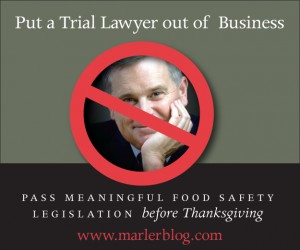The raw milk fights: economics, ideology, or both?
Today’s New York Times has an op-ed, “Crying over raw milk“, about the political fights over raw milk in Wisconsin. The Wisconsin legislature has introduced a bill allowing dairy farmers to sell raw milk directly to consumers. The conventional dairy industry is not happy about that.
The author of the piece, Michael Feldman, is dubious about the purported health benefits of raw milk but is quite clear about its economic benefits: “you can’t get $6 a gallon for pasteurized milk.”
Crass economics is behind much of the politics of raw milk these days. The conventional dairy industry is in trouble: too many cows, too much milk, and not nearly enough regulation of supply. In contrast, raw milk has passionate advocates willing to pay premium prices.
Not fair, says the dairy industry, which wants raw milk to be regulated:
In a letter to two senior members the Senate Committee on Health, Education, Labor and Pensions, the dairy groups called for a measure obliging all facilities producing raw or unpasteurized milk products for direct human consumption to “register with FDA and adhere to the tried-and-true food safety requirements that are followed by all other facilities producing milk products”.
As for the safety of raw milk, it is useful to take a look at Seattle attorney Bill Marler’s website: “Real Raw Milk Facts.” There, he summarizes recent cases of illness caused by toxic E. coli and Salmonella contaminants in raw milk. These constitute a full employment act for attorneys like Marler who represent victims of foodborne illness.
My position on raw milk has long been that people have a right to drink it but it had better be produced safely. I believe that all foods–no exceptions–should be produced under well designed and carefully followed HACCP plans (or their equivalent) with pathogen testing at intervals commensurate with the level of risk.
But food safety experts tell me that raw milk can never be tested frequently enough to be confident it is safe.
Raw milk carries a greater risk of bacterial contamination than pasteurized milk and people who buy it should know what those risks are. The risk may be small, but it is finite. Putting a child at risk of hemolytic uremic syndrome from toxic E. coli just doesn’t make sense to me.
Like Michael Feldman, I’m dubious about the claims made for the health benefits of raw milk. No question, it tastes better and that may be reason enough to want it. But until I can be sure that the producer is scrupulous about safety, my personal choice favors pasteurization.
But that’s just me. You?


